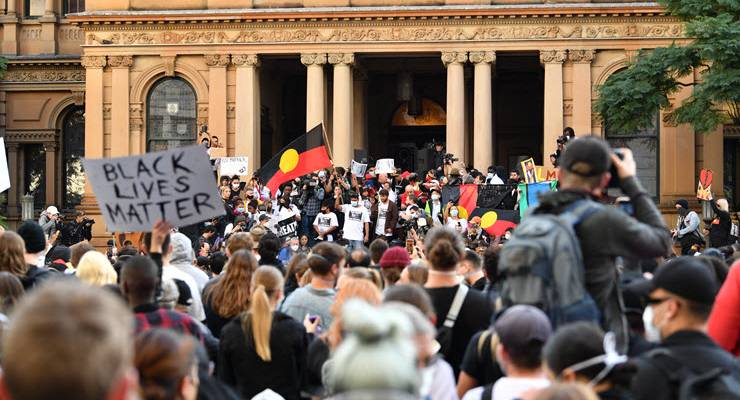
It’s getting harder for Australian politicians to look away from the country’s treatment of Aboriginal and Torres Strait Islander people. So how might the movement play out here? And what issues must the government address?
Investigations into deaths in custody
Australia’s record of Aboriginal deaths in custody was the focus of Black Lives Matter (BLM) protests at the weekend. As of Monday, there had been 437 Aboriginal deaths in custody since the royal commission into the issue in 1991, and not a single conviction.
Will the movement be the catalyst for these deaths to be reinvestigated? Victorian Aboriginal Legal Service chief executive Nerita Waight told Crikey there was mounting pressure for this to happen.
“The onus is on state and territory governments to reinvestigate those deaths,” she said. “I would hope this would enliven their sense of accountability.”
Incarceration rates
Although Aboriginal and Torres Strait Islander adults make up about 2% of the national population, they constitute 27% of the national prison population.
Both federal and state governments are under pressure to address this issue, either by fully implementing the recommendations of the 1991 royal commission or looking at other solutions.
Labor Senator Malarndirri McCarthy has called on the prime minister to create a national cabinet on Aboriginal incarceration and deaths in custody. But Indigenous Affairs Minister Ken Wyatt has said jails are a state issue.
Transform the police
A core tenet of the BLM movement here has been to expose police brutality as an Australian problem, not just an American one.
In the US, governments have started dismantling their police departments. The movement here is calling for a transformation of how police are held accountable.
“This culture of police investigating police is not enough,” Waight says. “We need to completely overhaul this system.”
Professor Marcia Langton used her Queen’s birthday honour to call for an end to deaths in custody: “I would have thought it’s pretty straightforward. Do not kill Aborigines.”
Constitutional recognition
The movement is likely to spark a renewed push for a voice to parliament for Aboriginal and Torres Strait Islanders after the 2017 Uluru statement was rejected by two prime ministers. But the weekend’s protesters want more immediate and tangible changes to Australia’s justice system.
“It’s disappointing they haven’t taken up this opportunity to change and lead. I hope that as the sentiment grows that will change,” Waight said.








Crikey encourages robust conversations on our website. However, we’re a small team, so sometimes we have to reluctantly turn comments off due to legal risk. Thanks for your understanding and in the meantime, have a read of our moderation guidelines.